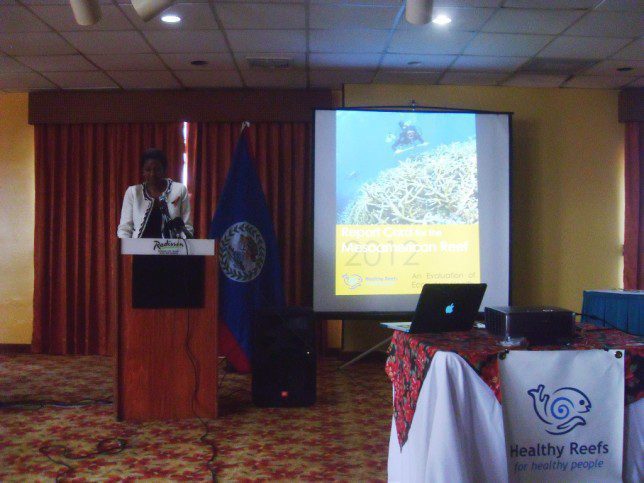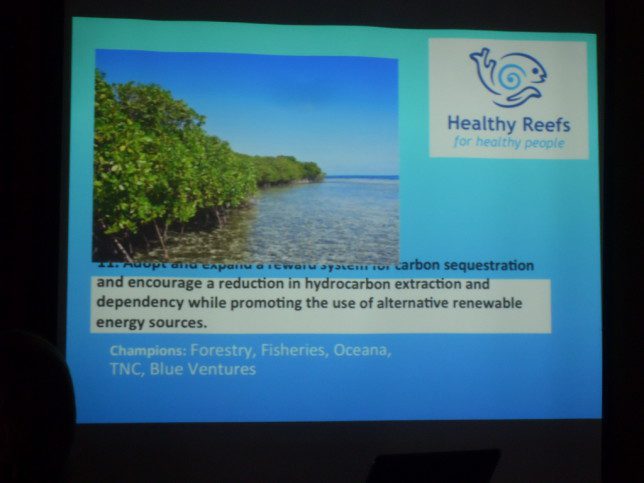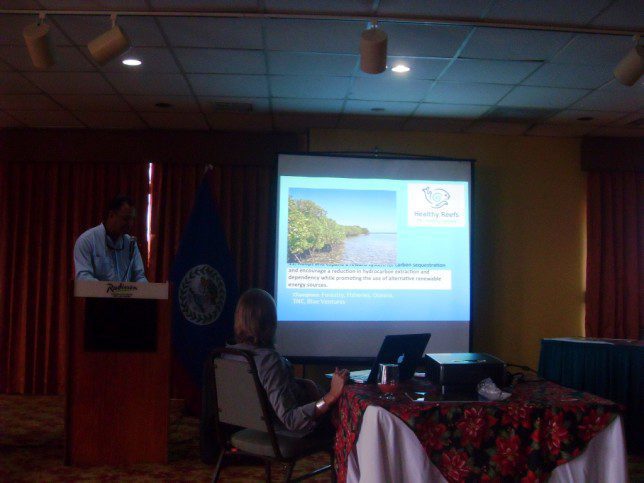by Jennifer Chapman, Country Coordinator, Belize
All too often research efforts undertaken by organisations and individuals are not shared. Beautiful reports are produced, describing problems, threats, changes, declines, recommendations, opportunities, constraints… but no one reads them. Nothing happens.
The Healthy Reefs Initiative (HRI), launched in 2004, seeks to overcome this by uniting marine conservation groups in the Mesoamerican Region, bringing together expertise, opinions and findings. Through this collaborative effort, HRI created an index to measure reef health, enabling quick comparison between each location, and produces digestible report cards on ecosystem health every two years.
This report card is brings a regional perspective to reef health, which helps us to monitor recovery or decline and identify the major drivers for change. For example, the majority of Mexican reefs have improved reef health since 2006. These reefs were affected by hurricanes in 2005, and their steady recovery is encouraging. Country-wide, parrotfish biomass in Belize has increased by 33% following the introduction of the ban on fishing herbivores. Fleshy macroalgae levels are now poor for the entire region; in 2008, only Honduras was classified as ‘poor’ in this category.
The report card also presents the recommendations for governments, NGOs, the private sector and scientists that were created and updated at the regional partner meeting earlier this year (for the blog entry about this meeting click here). Roberto Pott, the Belize Coordinator for the Healthy Reefs Initiative, presented these recommendations alongside their ‘champions’: the organisations that have committed to include these in their strategic plans for the coming years. Blue Ventures is listed as a champion for many, including the recommendation to adopt a reward system for carbon sequestration, similar to the mangrove conservation through payment for ecosystem services project implemented by Blue Ventures in Madagascar.
In 2012, Blue Ventures and HRI became partners, and the staff at Bacalar Chico carried out surveys at requested sites to be submitted for use in the 2012 report. Initially, only data collected by staff was accepted, due to doubts cast on the quality of volunteer-collected data. However, our extremely high standards for dive, identification and survey training are irrefutable, and all MBRS data collected between January and September 2012 was submitted. To all previous and future BV volunteers – it’s hard work, but it’s worth it!
Before Blue Ventures began monitoring the reefs in Bacalar Chico Marine Reserve, the area was under-represented in regional assessments. The first time I presented findings, at the 2011 National Resource Management Symposium at the University of Belize, the audience was shocked to hear the reef was in such poor condition. It is uninhabited and rarely visited by fishers or tourists, so why should it be?
The answers to this are multiple, and are discussed fully in the 2011 Annual Report. However, a major take-home point is that reefs do not recognise reserve boundaries. Contaminated water, over-exploitation of fish stocks, and the unstoppable forces of global climate change are all impacting upon our reefs. This means that whether you live on the beach in Belize or in the centre of London, your actions can make a difference.
So what can you do to help? Melanie McField, when presenting findings at the report card launch in Belize City on the 4th December 2012, cited responsible consumption of seafood to be the best action an individual can make to help protect reefs. Along with the 2012 report card, the Seafood Guide for Belize was distributed at the launch.

Belize’s first lady, Kim Simplis-Barrows, delivered the welcome address at the official launch of the 2012 Report Card at the Radisson Hotel, Belize City.
For more information, download the HRI 2012 Report Card from their website.



